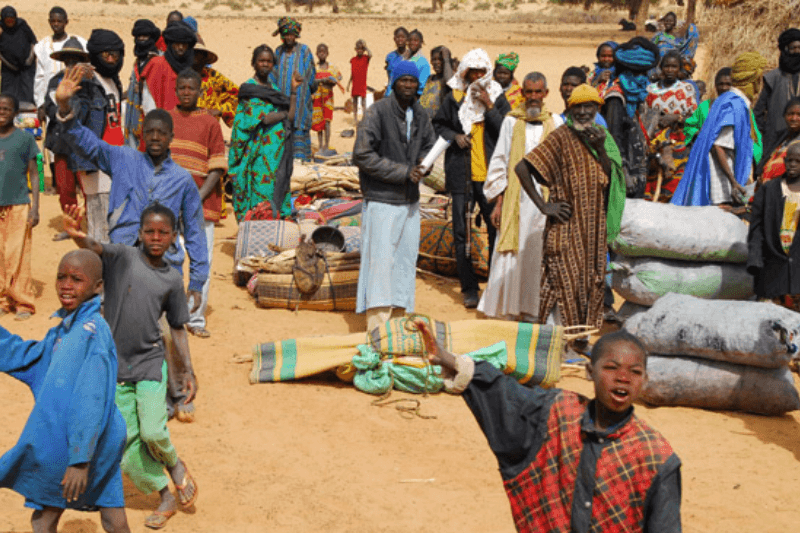A City Under Siege
What initially seemed like an empty threat from jihadist forces in Timbuktu has turned into a dire reality for its tens of thousands of residents. A month and a half into the siege, they find themselves almost entirely cut off from the world, trapped in a city with dwindling supplies and increasing danger.
The Unexpected Blockade
The Jihadist alliance, Support Group for Islam and Muslims (GSIM), affiliated with Al-Qaeda, declared “war in the Timbuktu region” in August. Abdoul Aziz Mohamed Yehiya, an organizer for civil society, reflects on how they initially dismissed the threats as intimidation tactics, only to realize the harsh reality of the blockade.
Perilous Road to Nowhere
Attempting to enter Timbuktu now comes with extreme risks. GSIM’s local commander, Talha Abou Hind, warns that any trucks trying to break the blockade will be targeted and set ablaze. The roads leading to the city are fraught with encounters with heavily armed Islamists, making travel a life-threatening ordeal.
The Lost Lifeline: Niger River
Once an alternative transport route, the Niger River, flowing near Timbuktu, has become inaccessible since a jihadist attack on a ferry in September. Dozens of innocent bystanders lost their lives, further isolating the city.
Air Travel Suspended
The city’s only airline, Sky Mali, temporarily halted its services due to nearby shell attacks. With limited access to supplies and a disrupted transportation network, Timbuktu faces mounting challenges.
Jihadist strategy unveiled
Jihadists in northern Mali are strategically encircling towns with superior defenses, increasing pressure on the central government rather than capturing control. The military junta ruling Mali since 2020 has attempted to downplay the severity of the crisis, initially refusing to acknowledge it as a blockade.
Keep Reading
Economic Consequences
The city’s trade has suffered immensely. Lorries are stranded, unable to transport goods into Timbuktu, causing shortages and soaring prices for essentials. Local traders warn that if the situation persists, many shops may be forced to close.
Impact on Residents
Residents of Timbuktu are paying a heavy price for the shortages and speculation. The cost of living has skyrocketed, with gasoline prices surging from 700 CFA francs to 1,250 CFA francs per liter. The threat of shells has transformed daily life, with people living in constant fear.
Multiple threats loom.
In addition to the Islamist insurgency, Timbuktu faces the possibility of attacks by Tuareg and Arab separatist organizations. Arab and Tuareg citizens have emptied their shops due to fear of retaliation, leaving the streets deserted and filled with unease.
Calls for Negotiation
Amidst the crisis, calls for traditional authorities to negotiate with jihadists have emerged. However, the Malian government remains steadfast in its refusal to negotiate with terrorists, leaving the residents in a state of desperation.
Seeking a way out
As Timbuktu remains isolated and its people endure scarcity and terror, there appears to be no immediate solution in sight. The message from Prime Minister Choguel Kokalla Maiga during a meeting with Timbuktu representatives is clear: to overcome this ordeal, sacrifices must be made, even if they are difficult and unpleasant.
In Summary:
Timbuktu, once an iconic city with a rich history, is now grappling with isolation, scarcity, and terror as jihadist forces maintain a blockade. Residents live in constant fear as shells rain down, supplies dwindle, and the world watches the unfolding crisis. The city’s plight calls for urgent attention and intervention to alleviate the suffering of its people.

